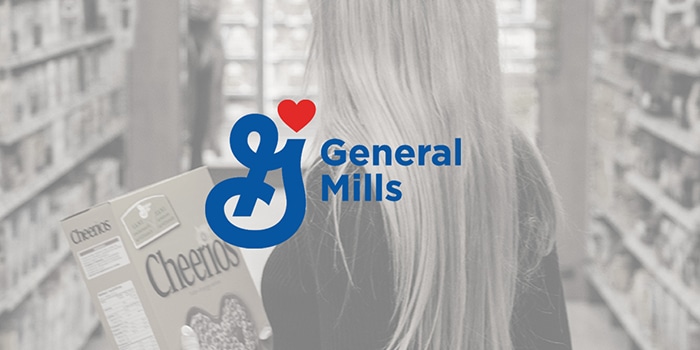General Mills: In Q4, U.S. Market Sees Best Performance in a Decade

Food producer General Mills reported “outstanding performance” in its Q4 earnings report today, with net sales increasing 21% to $5 billion as consumer spending focused on food staples.
In a prerecorded earnings presentation, CEO Jeff Harmening noted that during “a year of significant challenge and change in the world,” the company exceeded its key financial goals, generating $17.6 billion in net sales, a 5% year-over-year increase.
Much of that growth happened in the fourth quarter; as consumers stayed home due to the pandemic, net sales for General Mills’ North America retail segment grew 36% to $3.2 billion, with particular uptick in refrigerated baked goods, flour, dessert mixes and soup. Sales in meals and baking grew 75% during the quarter, and cereal sales grew 26%, while yogurt and snacks each grew 10%. Additionally, household penetration grew in all categories, Harmening said.
CFO Jon Nudi added that cereal grew 5% for the full fiscal year and that the company’s share of the category also grew in 11 of the past 12 quarters. General Mills’ messaging around heart health in the past year — including a limited-time offering of heart-shaped Cheerios — worked “incredibly well,” Nudi said.
“We feel good about the cereal category and even better about our performance,” Nudi told analysts during the Q&A segment.
The company initially faced out-of-stocks for some of its core products, but through efforts such as SKU rationalization and a focus on production capacity, was able to strengthen inventory levels for its retail partners. General Mills cut SKUs in desserts and soups, for example, reducing soup brand Progresso’s SKU count from 80 to 50, some of which will phase back in, Nudi said.
“I think we will take the opportunity to make sure we have an efficient portfolio that works for us and our consumers,” he said. “Variety is important though so we have to work through that as well.”
Nudi added that demand for at-home eating is likely “the single hardest thing to predict.” During the fourth quarter, repeat purchases were highest in Cheerios and Pillsbury as well as organic brand Annie’s, he noted. Dessert products and Old El Paso also proved popular, Nudi explained, adding that the company has strived to improve product ingredients and taste across its portfolio in the past decade.
Aside from the surge in demand, the company also saw an executive shake-up during the pandemic as longtime executive Carla Vernon, who led the natural and organic division, parted ways.
The company will not provide guidance for 2021 due to “the significant uncertainty in the balance of at-home versus away-from-home food demand,” Harmening said. Moving forward, the company will focus on three key areas: competing effectively across channels, brand investments and improving its financials.
Ecommerce represented 9% of the Q4 company’s net sales as the company set out to increase consumer engagement online, Harmening said, and the channel will remain a key area of improvement.
In the presentation, Harmening also restated the Minneapolis-based company’s support for the current movement for racial justice. Harmening previously outlined details, including plans to partner with other companies and organizations, in a blog post last month.
“We have a lot of work to do to start the healing, to help our communities rebuild, to emphasize that Black Lives Matter, and to help drive lasting change for social and racial justice,” Harmening said, noting the company’s “commitment to foster courageous conversations and to take courageous actions.”
















